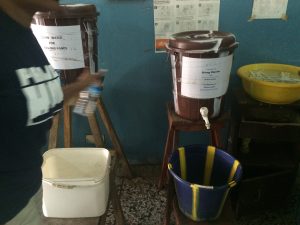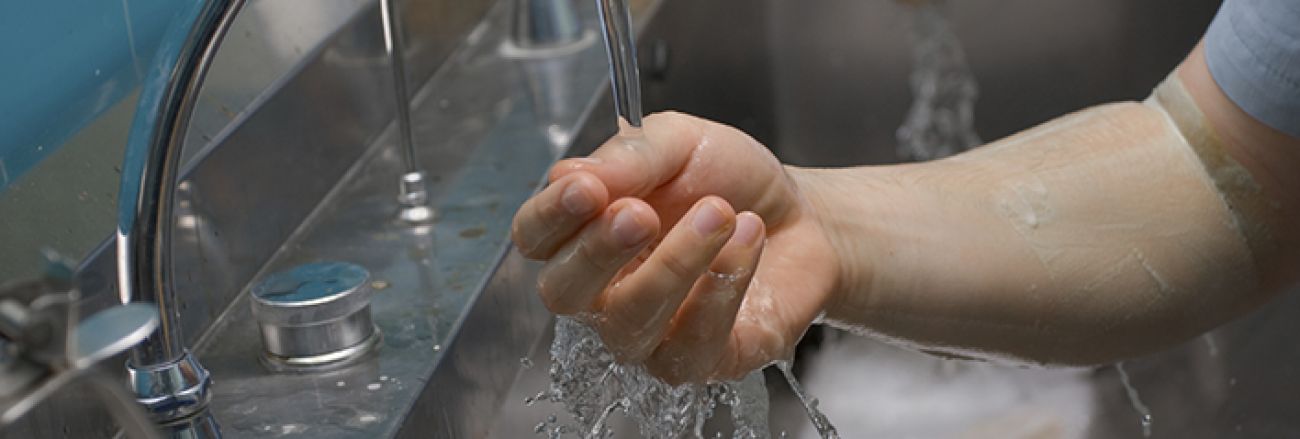Given today is World Hand Hygiene Day, I felt compelled to share some observations from my recent travel. The timing of today serendipitously aligns with my current work with Project Hope in Sierra Leone and with Village Health Works in Burundi. (I’ll expand upon this work in a future post; while we have a Mazzetti/Sextant team on the ground in Honduras installing solar panels for Pan American Health Services, I’d like to keep the focus on them.)
I just received a newsletter from APIC noting that May 5 (today) is World Hand Hygiene Day. Ordinarily, I might let that pass, but today, I need to write about it.
I am, as I said, in the center of Ebola – Freetown, Sierra Leone. As I have prepared, and executed this work, I have been in touch with a network of Infection Preventionists from the US to ensure I understood needed facility responses to Ebola, so I would be prepared to assess the local facilities, as that was part of the request for the work I am doing here.
Two things have surprised me about this (after my first day on the ground in SL).
First, is the connection between operations and facility design. As I have pored over the World Health Organization (WHO), Center for Disease Control (CDC), and other manuals for managing this infectious disease, it is clear that some infection is facility related – you cant dispose of infectious waste without facilities to do so. You cant don and doff PPE if you don’t have facilities to do so. Nor can you store the clean dirty suits and the personal effects of the people who use the PPE, without facilities to do so. But it matters a lot more whether the caregiver puts the PPE on correctly than what kind of facility it’s in. It matters a lot more that the patient has distractions and psychological comfort than it does if there is a single bed room or a ward for the identified Ebola patients.
I do a lot of work in the US on codes–we always spend a lot of time arguing about whether a code is “construction” or “operation.” These distinctions seem increasingly silly to me. Implicit in every construction requirements is an assumption about how the facility will be operated; you cannot talk about one without talking about the other. And while this topic is important, that discussion is for another day.
The second and the timely lesson I have learned in my first day here is that this country really gets Ebola; much better than we do in the US, of course. This country has lived it. The Public Health education information is everywhere. More to the point, In every building I entered, I was required to wash my hands and/or apply gel before entering. To enter many buildings, they take your temperature first, to ensure you don’t need immediate isolation.
Operations matter. Hand washing is the foundation of good health. The people in Sierra Leone don’t need a special day to remind them.

Labeled water dispensers for cleaning. (In Sierra Leone with Project HOPE)
More hand hygiene resources from the WHO here.
Interested in what you see? Subscribe to receive monthly news and information
more tailored to what you need.

